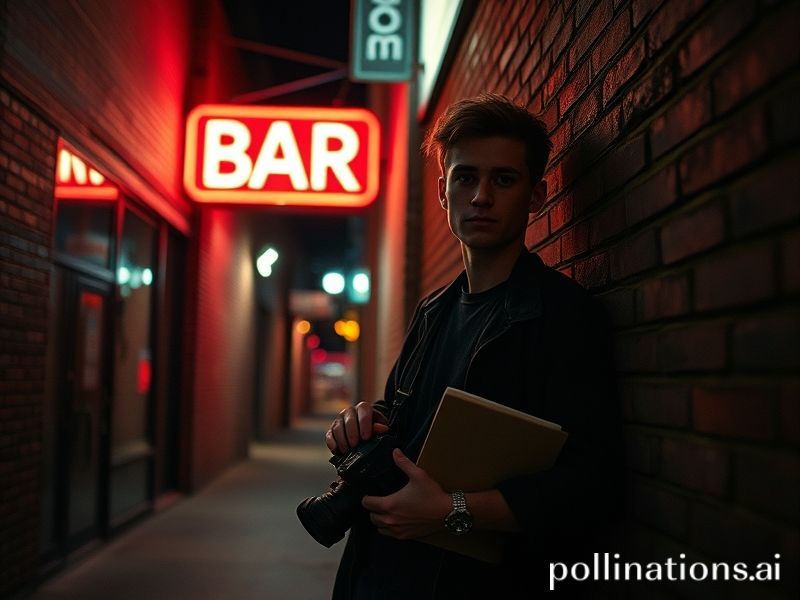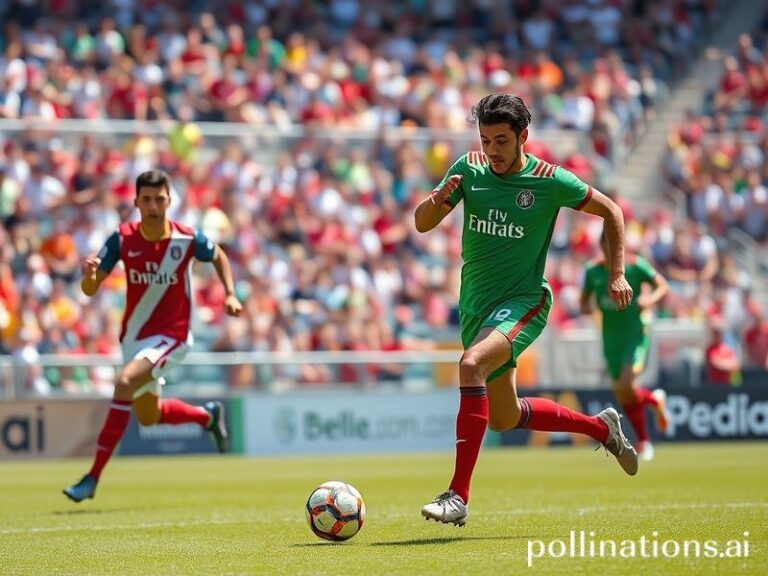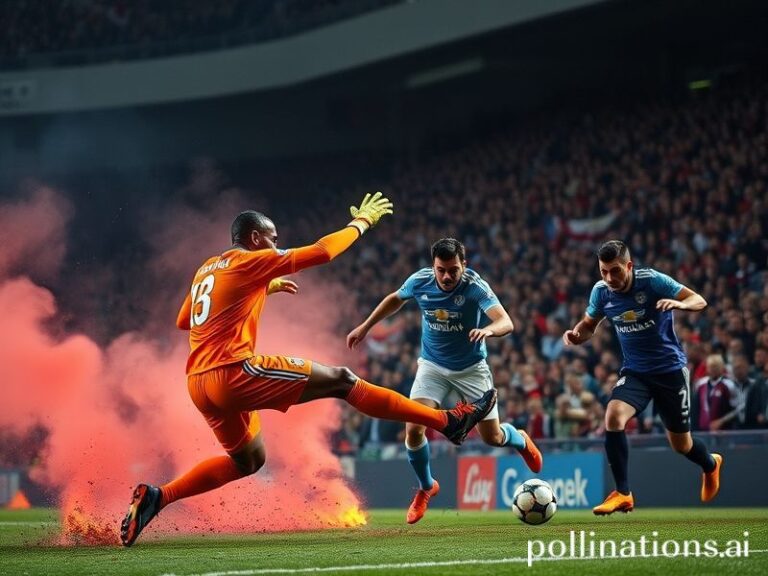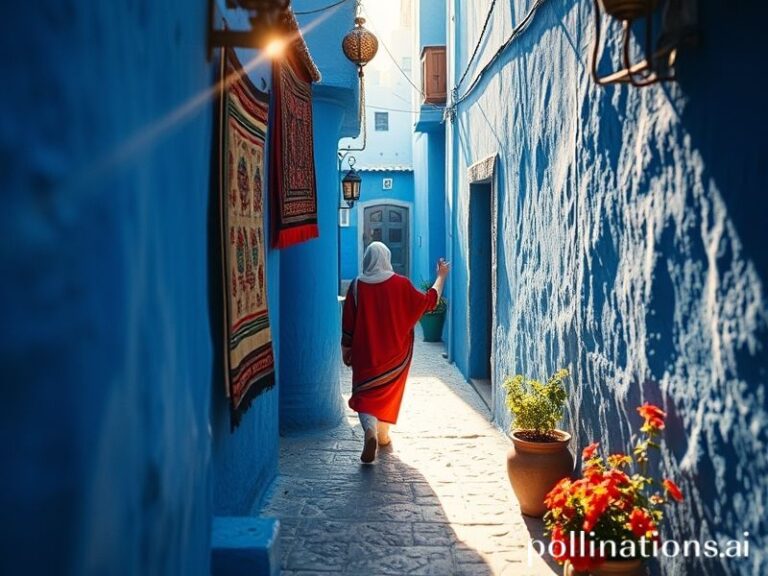Alex Clark and the Durian-Fueled Collapse of Global Attention: An International Post-Mortem
Alex Clark and the Quiet Implosion of the Western Attention Span
By Our Correspondent in Transit, Somewhere Between Reykjavík and Regret
PARIS—Somewhere in the algorithmic ether, a man named Alex Clark—British by passport, algorithmic by necessity—became the latest proof that global civilization can no longer agree on what matters, only on how quickly it must scroll past it. Mr Clark, a 34-year-old former data analyst turned accidental TikTok oracle, began posting 19-second clips in which he reads corporate earnings statements aloud while eating increasingly exotic fruits (rambutan, durian, the fermented corpse flower of Sumatra). In three months he amassed 42 million followers from Lagos to Lima, all apparently hungry for a hybrid of potassium and quarterly guidance. The United Nations has yet to issue a statement, but UNESCO insiders admit they are “monitoring the phenomenon with the same enthusiasm usually reserved for melting glaciers.”
The numbers, like most modern statistics, feel simultaneously colossal and meaningless. In Jakarta, night-shift nurses project Clark’s face onto break-room walls for morale. In suburban Ohio, teenagers mirror his durian stunt and end up on first-name terms with local poison-control hotlines. Meanwhile, the European Central Bank quietly added “Clark volatility” to its risk dashboard—defined as the 0.3-second lag between his disclosure of, say, Nestlé’s cocoa margins and the corresponding plunge in cocoa futures. Analysts now speak of “pre-clark” and “post-clark” market sentiment the way medieval peasants once divided time by plagues.
Of course, no planetary circus is complete without geopolitical shadow puppets. The Chinese platform BàoLiú attempted to clone Clark under the handle “A-Lai Ke-Lake,” substituting lychee for durian to avoid import tariffs. Within 48 hours the algorithmic doppelgänger was reading not earnings reports but the poetry of Chairman Mao, causing a 4% spike in nationalist-themed ETFs. When pressed, Beijing’s censors shrugged: “We simply accelerated the inevitable synthesis of snackable content and ideological fiber.” The shrug was, naturally, turned into a GIF and looped 11 million times.
Even the climate has opinions. A rogue glaciologist in Svalbard superimposed Clark’s subscriber growth curve onto ice-loss data; the two lines achieved near-perfect correlation, prompting the journal Nature Climate Change to reject the paper for “insufficient seriousness,” which, in 2024, is rather like refusing to board the Titanic because the deck chairs aren’t color-coordinated.
What makes Clark fascinating—aside from the obvious, that humanity has decided quarterly earnings are best digested with tropical mucilage—is how perfectly he embodies the international mood: a low-grade fever of apocalypse-adjacent voyeurism. Viewers in Kyiv watch between air-raid sirens; viewers in Silicon Valley watch between funding rounds. The common denominator is the desire to feel something—anything—without leaving the feed. It’s grief tourism for the end of late capitalism, packaged like airline peanuts.
The backlash arrived right on schedule. French intellectuals declared Clark “the edible symptom of our structural nihilism,” which roughly translates to “we hate that we love him.” German regulators mulled forcing him to disclose whether the durian was sustainably sourced, then realized the carbon footprint of the livestream itself dwarfed the fruit. In Washington, a bipartisan bill titled the “Fruitful Disclosure Act” died in committee when senators discovered none of their interns could explain what TikTok actually is.
Clark himself remains characteristically opaque. His sole on-camera comment about global influence—“I just wanted to see if durian pairs well with GAAP adjustments”—has already been quoted in fourteen think-tank white papers and one Vatican homily. Off-camera, friends report he spends his royalties on carbon offsets and vintage Tamagotchis, a combination so perfectly 21st-century it could be its own UN Sustainable Development Goal.
And so the world spins, slightly stickier, slightly better informed about cocoa margins. Analysts predict the Clark moment will peak just before the next World Cup, when football will once again prove humanity’s preferred opiate. Until then, we watch a man eat fruit and recite spreadsheets, comforted by the illusion that if we can still be surprised by something so trivial, perhaps the center will hold a little longer. Spoiler: it won’t. But at least the potassium intake is up 17% worldwide—small victories in a decaying orbit.







